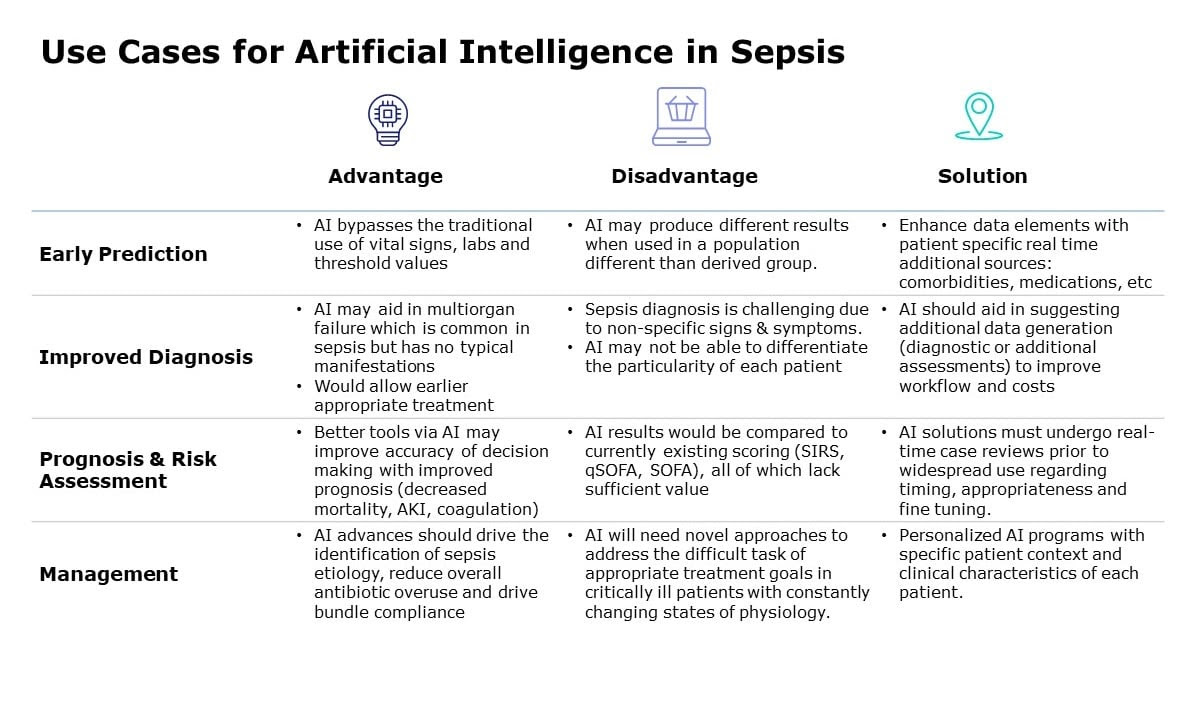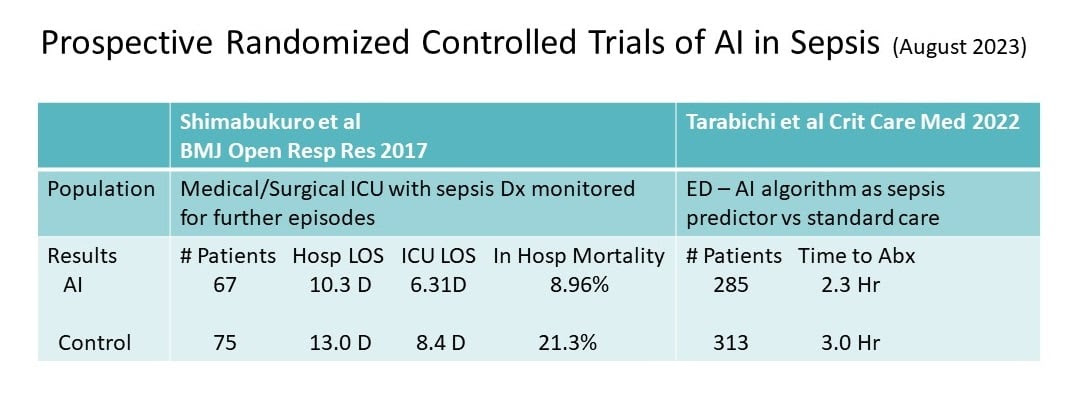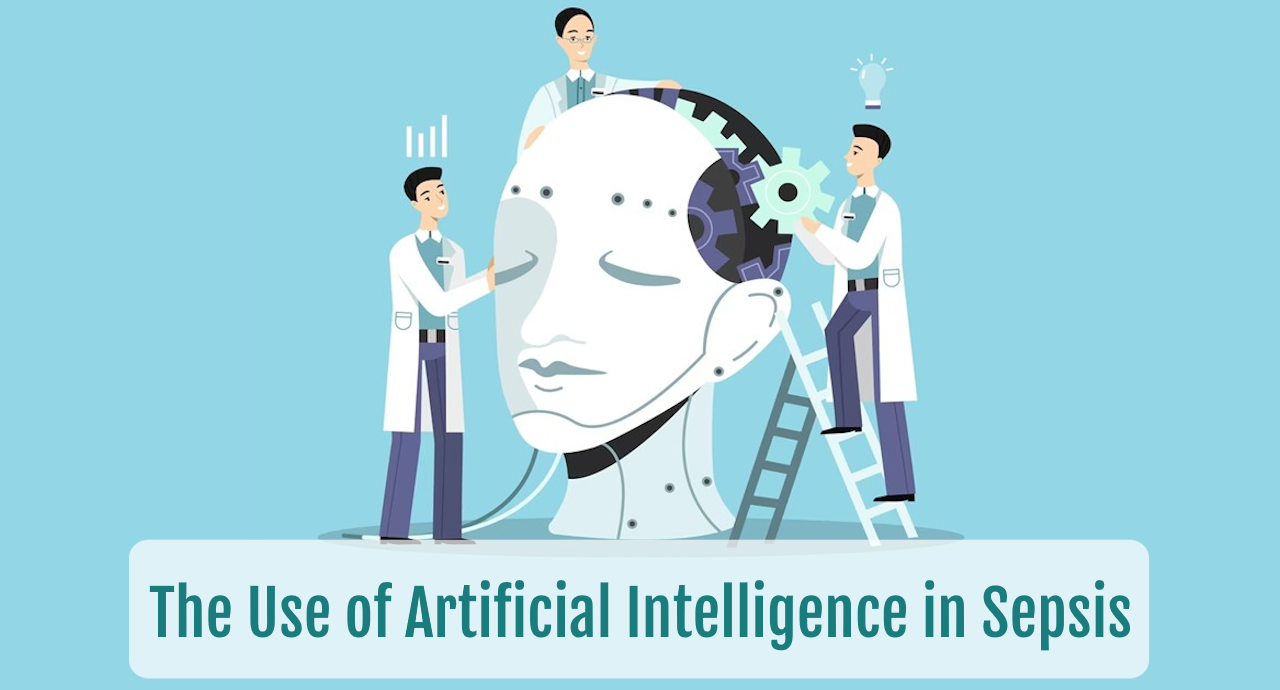The Use of Artificial Intelligence in Sepsis
SUMMARY
- Incorporating artificial intelligence into sepsis is a complex and challenging issue.
- Artificial intelligence algorithms in sepsis may be applied to: prediction; prognosis; mortality prediction; and optimal management.
-
Limited data suggests artificial intelligence may provide a new approach to sepsis, but optimal provider input and considerations remain elusive.
REVIEW
- Artificial Intelligence (AI) is the ability of computers to recognize patterns, inference and decision making.
- Although sepsis makes an ideal candidate for the application of AI, it is a complex and challenging problem due to:
- Lack of a specific definition
- Heterogeneity of various definitions
- There are several areas of sepsis identification and management where AI may be of benefit:
- Early prediction of sepsis
- Patient prognosis
- Mortality prediction
- Optimal management

-
To date there are only 2 published prospective randomized clinical investigations assessing the potential benefit of AI sepsis models.
-
These 2 studies demonstrate:
-
Improved antibiotic administration times from time of ED presentation
-
Improved hospital and ICU length of stay
-
Improved hospital mortality
-

CONCLUSIONS
-
AI models may have differing outcomes due to significant heterogeneity of sepsis criteria.
-
Area under the curve metrics should be combined with clinical outcomes
-
The current AI models have limitations requiring further evaluation.
To receive articles like these in your Inbox, you can subscribe to Sepsis Program Optimization Insights.
Erkan Hassan is the Co-Founder & Chief Clinical Officer of Sepsis Program Optimization where he designs & oversees the implementation of solutions to optimize sepsis programs.
To discuss your organization’s Barriers of Effective Sepsis Care, contact Erkan by phone (844) 4SEPSIS (844-473-7747), email (erkan@spo.icu), or video chat.





